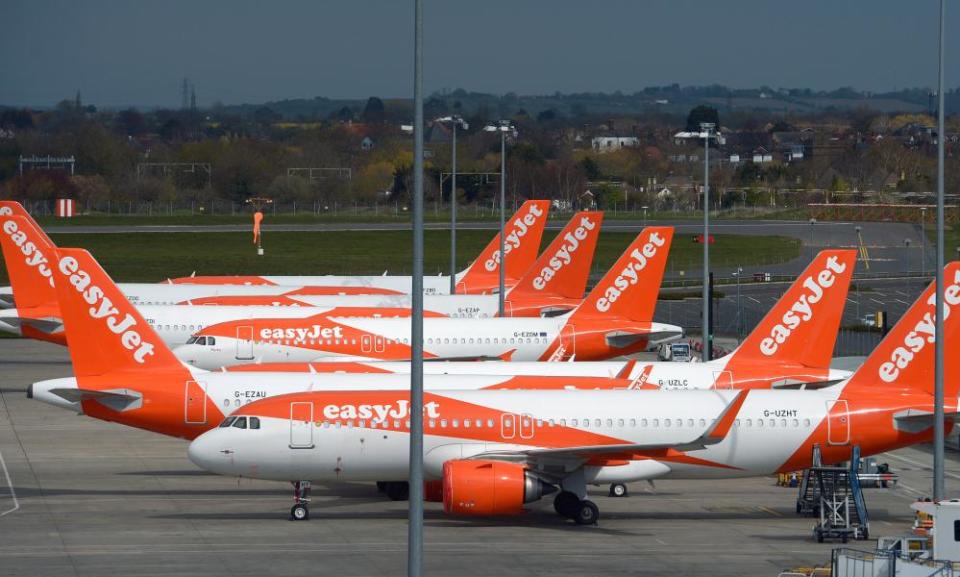EasyJet's axe-wielding smacks of opportunism

Nobody can be surprised that easyJet plans to cut jobs – every airline is doing so. But a ratio of “up to” 30% of the entire workforce sounds extreme. Michael O’Leary at Ryanair, who rarely does things by halves, opted for 15%, and has suggested in recent days that the final figure could be lower.
EasyJet explained that “levels of market demand seen in 2019 are not likely to be reached again until 2023”. That is possible, of course, but the prediction could also turn out to be too gloomy. The peak Easter and summer seasons of 2021 remain a very long way off. If they’re free to travel, would Brits, and Europeans in general, deny themselves a foreign holiday for two years in a row? Long-haul flights will probably be slow to recover, but that’s not EasyJet’s market.
Chief executive Johan Lundgren argued that he had to manage many uncertainties, ranging from the possibility of a second wave of infections to the effect on prices and competition of the bailouts of so many “inefficient” continental rivals. EasyJet’s fleet will be smaller than previously planned and efficiencies are a normal course of business. His priority is to ensure the company survives and emerges at least as strong.
That’s all true, but there’s a whiff here of management exploiting the moment to re-set the cost base. That’s what boards are paid to do, one might say. But, in the shoes of the trade union, you’d press hard for more flexibility. Like easyJet’s share price, which has bounced 50% from its lows in the past fortnight, the outlook is evolving.
Time for Pretty Little Thing to grow up
Call it pretty little timing. On Tuesday, a short-seller called Matthew Earl claimed, among other things, that Boohoo might overpay for the 34% of Pretty Little Thing (PLT) that it does not already own – that is to say, the slice of the celeb-heavy fashion brand mostly owned by Umar Kamani, son of Boohoo founder and chairman Mahmud Kamani. A figure of nearly £1bn was mentioned.
Rubbish, said the company at the time, and on Thursday it proved its point. It agreed a deal at £270m plus a possible £54m add-on – well within the City’s guess of what the PLT minority stake would cost. Cue a 15% rise in Boohoo’s share price to an all-time high of 385p, with Earl presumably retiring to lick his wounds.
Boohoo can congratulate itself on resolving a mini-drama before it became heated. It is astonishing that 66% of PLT could cost £3.3m in 2017 and 34% fetch up to £324m three years later, but that’s a function of the remarkable rise in revenues and profits.
In the process, Boohoo, enjoying only slightly slower growth in its main operation, has eclipsed Asos as the star performer in the online-only clothing game. The company is now worth £4.7bn. If it didn’t reside on the junior Alternative Investment Market (as does Asos), it would currently be big enough to qualify for the FTSE 100 index.
The moment has surely come to make the switch to the main market. After a £197m fundraising a fortnight ago, the Kamani interests plus those of co-founder Carol Kane, are down to 25%, so Boohoo is less of a semi-private operation than it used to be. The full buy-in of PLT simplifies matters further.
Why the reluctance about a higher public profile and main-market listing? Greater financial reporting demands can’t be the only reason. If it’s a worry about having to answer more questions about the social and environmental impact of fast fashion, best to get over the hang-up. Scrutiny will come anyway. Boohoo is now worth more than twice as much as Marks & Spencer – time to join the market grown-ups.
To think Hong Kong could have bought the London Stock Exchange…
As China’s National People’s Congress approved a plan to impose new security powers on Hong Kong, let’s pause to remember that only eight months have passed since the wildest bid of recent times – Hong Kong Exchanges & Clearing’s £32bn attempt to buy the London Stock Exchange Group.
The LSE killed the silliness easily, citing the impossible politics among many factors – half of the board of HKEX, remember, are appointed by a Hong Kong government prodded from Beijing (presumably with a sharper stick in future). It’s amazing anyone ever took the bid seriously.

 Yahoo Finance
Yahoo Finance 